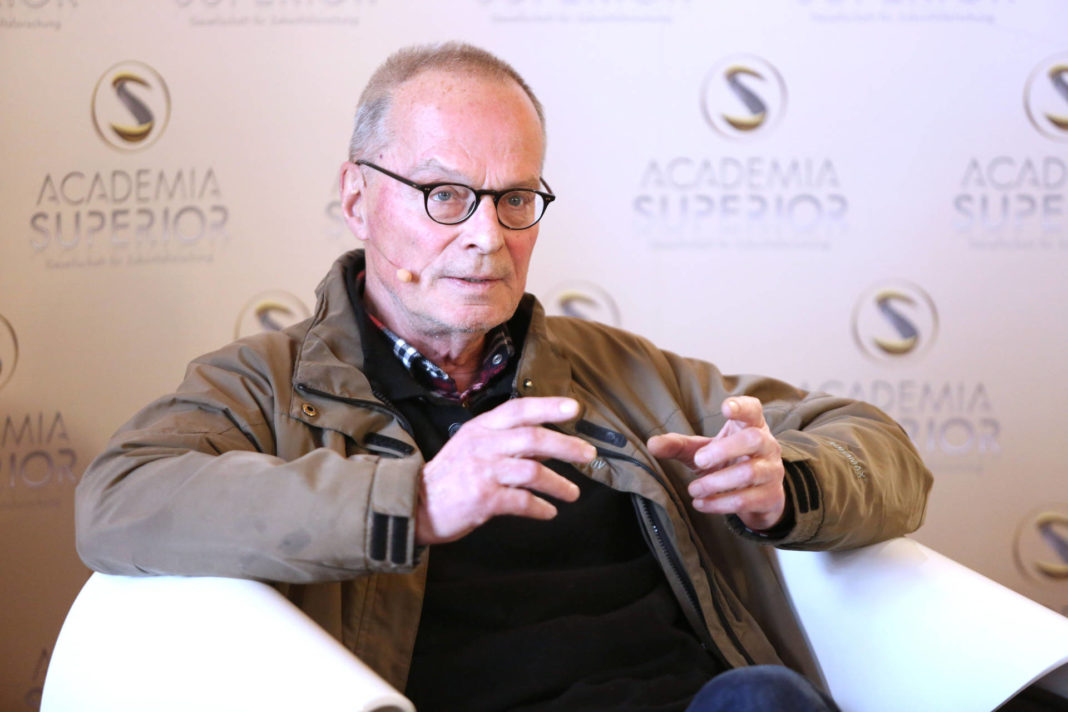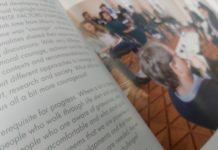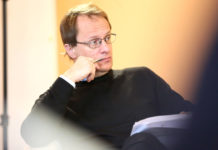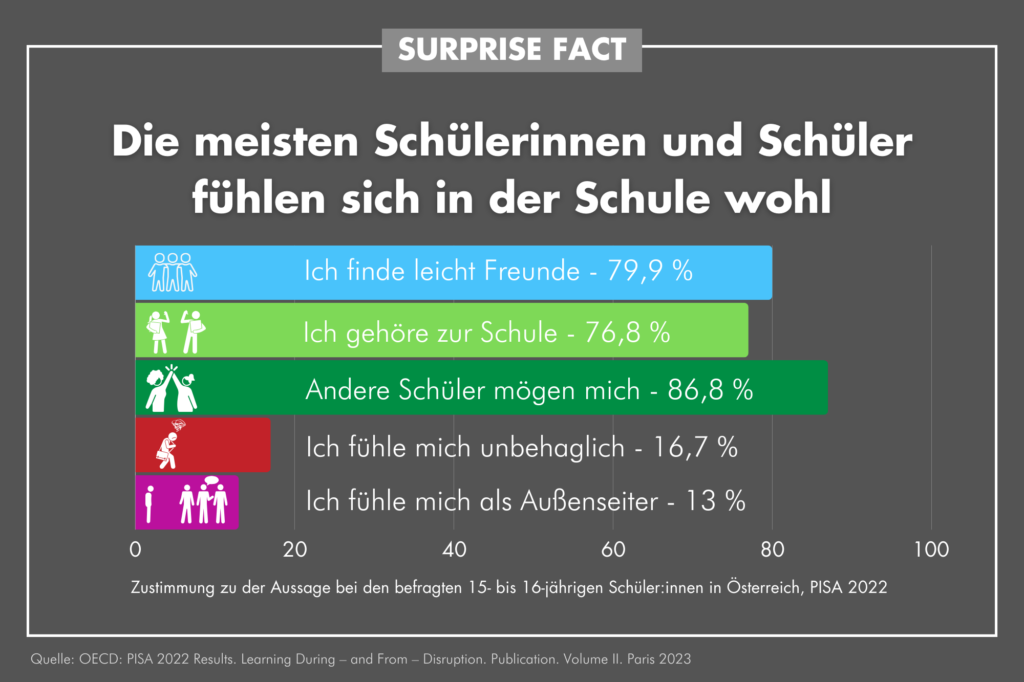Wolf Wondratschek was an expert at this years SURPRISE FACTORS SYMPOSIUM „Where does freedom start and where does it end?” in Gmunden.
The Interview with Wolf Wondtratschek:
When you think about freedom and writing, you might think it would be pure fun to be a writer. The opposite is true. It is the hardest job: To find the right sentence. To find the right word. To find the music in what you write. Ultimately to find the truth, to find the point. In one of his letters Gustav Flaubert says, “For one month I’ve been searching for one word.” Does this sound like fun?
„Writing is a monolog with yourself and a fight with the impossible. You do it in favor of something that we call art.”
Don’t aim to possess, be possessed
The other night when I fell asleep thinking about freedom, here are the thoughts that occurred to me: Nobody is free to decide, “Better not to be born.” Nobody is free to choose his mama and papa and the social circumstances he is born into. Nobody is free about what we call “destiny.” Nobody is free to decide what makes him run or what makes him stop running. Nobody is free of the fear to fail or to fall. Nobody is free in a world that is ruled by money. So nobody is free. And to be a “nobody” is the perfect existence for a writer.
To write, I have to be alone and be a loner. It takes two and a half years to write a novel. No TV, no newspaper, you don’t need to know what’s going on in the world of politics. I have to preserve the trance that I’m in. That means not being addicted to a wife or to a social life. You are simply not a social being.
To be free as a writer means not having ambition. No going for success or money or to see your name in the paper. Leave the decision of the value of what you write to the future – to 100 years from now.
On the other hand, when I was young I was lucky. I published my first book when I was 27 and it became an instant success. The most famous German critic, Marcel Reich-Ranicki wrote a full-page review in the newspaper. But then I had a problem: The publishing house wanted the next novel very fast.
I decided not to do this. Instead I started writing poetry. Poems were easier for me. They didn’t take a year to finish; in a good night I could write a poem. But I didn’t dare show them to my publisher because they were expecting my next novel. I published this little tiny book of poems by myself. I paid for it, 800 copies that I carried to the book fair in my little suitcase.
It was a kind of “anti-career” move, because I knew what people would say: “Oh my God, he was a big star two years ago and now he’s on drugs and he’s selling this little tiny book of poems? Poor boy!” What happened? I finally gave the book of poetry to a publisher, it went into distribution and within a year I sold 200,000 copies. Then people said, “Wondratschek is very smart!”
That’s a lesson in freedom as well. No matter what you do, there’s always a journalist who wants to kill you or put a cliché on you that strangles you. In the end, even under a dictatorship there will always be a pencil and paper and an empty room, and a candle to write something down. That’s enough. You don’t need the industry. You don’t need the fame. You don’t need the slice of “being somebody.” There you have freedom.
Personal data:
The native German was raised in Karlsruhe und studied literature, philosophy and sociology under Hans Georg Gadamer and Theodor W. Adorno among others.
Wolf Wondratschek is considered an absolute free spirit. Particularly his literary beginnings were characterized by a socio-critical attitude. The author started his career with the books “The day used to begin with a bullet wound” and “A farmer and a farmwoman have a farmboy who wants to be a farm servant”. Wondraschek wrote several different text types. After moving to Vienna in 1996 he focussed specifically on narratives and novels.
Many of his works were translated into several languages, the cycle of poems “The girl and the knife-thrower” debuted as a ballet in 2014 at the Bavarian State Opera.
Wondraschek is a prizewinning author and received three major awards such as the literary prize of the Wilhelm and Christine Hirschmann-Foundation in 2012.







